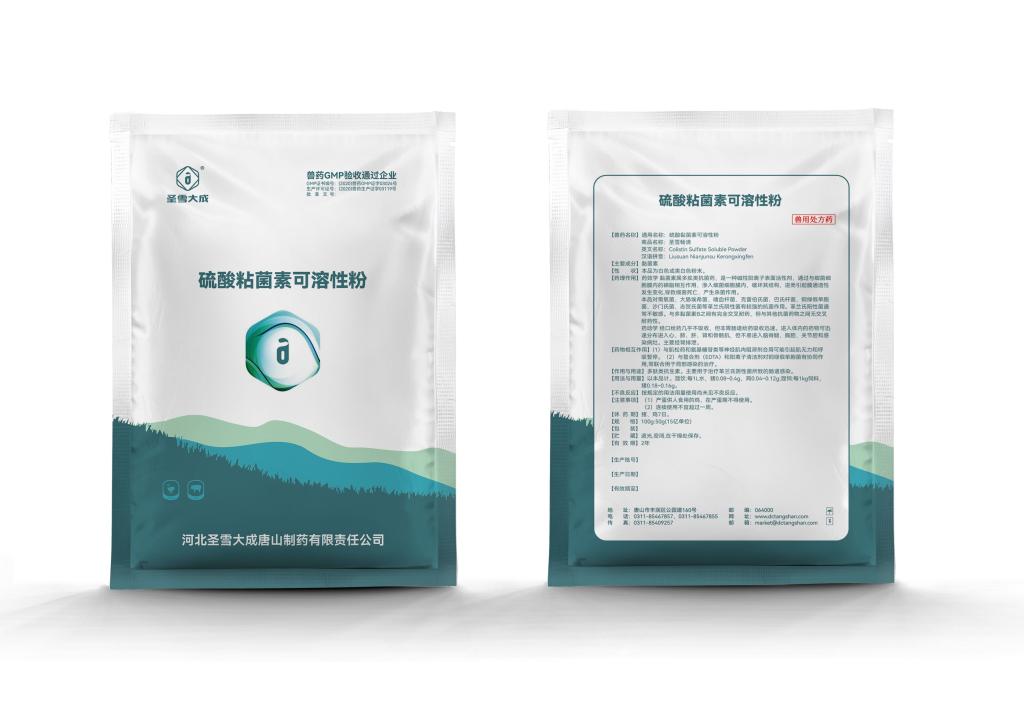Tel:+8618231198596

News
 CONTACT
CONTACT
 CONTACT
CONTACT
- Linkman:Linda Yao
- Tel: +8618231198596
- Email:linda.yao@dcpharma.cn
- Linkman:CHARLES.WANG
- Department:Overseas
- Tel: 0086 0311-85537378 0086 0311-85539701
News
Current Position:
Home >
News
>Community Engagement: Discussing Colistin Sulfate Soluble Powder in Agriculture.
Community Engagement: Discussing Colistin Sulfate Soluble Powder in Agriculture.
TIME:2024-01-17
Understanding Colistin Sulfate Soluble Powder
Colistin Sulfate is an antibiotic belonging to the polymyxin class. It is primarily used in veterinary medicine, but its application in agriculture has been a subject of debate. The soluble powder form of Colistin Sulfate is often employed in animal husbandry to treat bacterial infections in livestock. It is known for its efficacy against certain gram-negative bacteria, making it a valuable tool in combating bacterial diseases in animals.
Benefits of Colistin Sulfate in Agriculture
Disease Control: One of the primary benefits of using Colistin Sulfate Soluble Powder in agriculture is its effectiveness in controlling bacterial infections in livestock. Farmers often rely on antibiotics to safeguard the health of their animals and prevent the spread of diseases within herds.
Increased Livestock Productivity: By mitigating the impact of bacterial infections, Colistin Sulfate can contribute to increased livestock productivity. Healthy animals are more likely to grow and reproduce efficiently, leading to better overall farm yields.
Economic Impact: The economic benefits of utilizing Colistin Sulfate in agriculture are significant. Reduced livestock mortality and increased productivity can positively impact the financial well-being of farmers, contributing to the stability of agricultural communities.
Risks and Concerns
Antibiotic Resistance: One of the major concerns associated with the use of Colistin Sulfate in agriculture is the potential for antibiotic resistance. Overuse or misuse of antibiotics in any context can lead to the development of resistant strains of bacteria, posing a threat to both animal and human health.
Environmental Impact: The release of antibiotics into the environment through agricultural runoff can have adverse effects on ecosystems. The presence of Colistin Sulfate in soil and water may contribute to the development of antibiotic-resistant bacteria in the environment, impacting not only agricultural systems but also natural habitats.
Residue in Food Products: There is a risk of antibiotic residues persisting in animal products, such as meat and dairy, when Colistin Sulfate is used in livestock. This raises concerns about potential health risks for consumers and emphasizes the need for stringent regulations and monitoring.
Community Engagement in Shaping Agricultural Practices
Stakeholder Collaboration: Community engagement involves collaboration between farmers, agricultural experts, researchers, policymakers, and consumers. Open dialogues and shared knowledge can help create a holistic understanding of the impact of Colistin Sulfate in agriculture.
Education and Awareness: Empowering communities with knowledge about the benefits and risks of using Colistin Sulfate is crucial. Educational programs and outreach initiatives can help farmers make informed decisions, promoting responsible use and reducing the likelihood of misuse.
Regulation and Policy Advocacy: Community engagement plays a vital role in advocating for effective regulations and policies surrounding the use of Colistin Sulfate in agriculture. Local communities can work together to influence policymakers and ensure that guidelines prioritize both agricultural productivity and public health.
Research and Innovation: Engaging communities in ongoing research and innovation efforts is essential for finding alternatives to Colistin Sulfate and improving sustainable agricultural practices. This collaborative approach can lead to the development of safer and more effective solutions.
Conclusion
Community engagement is a cornerstone in the discussion surrounding the use of Colistin Sulfate Soluble Powder in agriculture. Balancing the benefits and risks requires a collective effort to ensure the long-term sustainability of agricultural practices. By fostering open communication, promoting education, and advocating for responsible policies, communities can actively contribute to shaping a future where agriculture thrives without compromising public health or environmental integrity.
- Tel:+8618231198596
- Whatsapp:18231198596
- Chat With Skype







